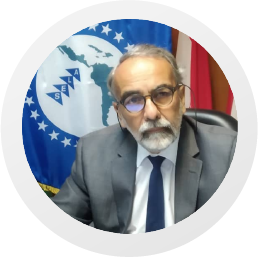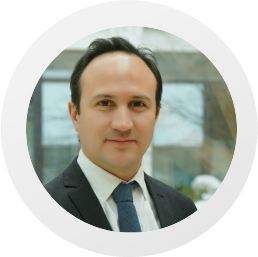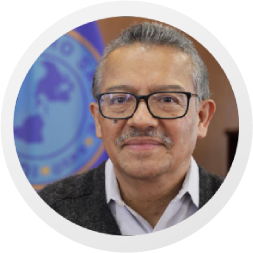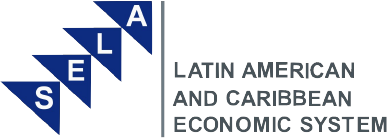introduction
The emergence of COVID-19 has posed a huge challenge for the world, in particular for the Latin American and Caribbean region. According to the UN Report on the impact of COVID-19 on the region, prior to the pandemic, the region's development model already faced serious structural limitations: high levels of inequality, balance-of-payments constraints and exports concentrated in low-tech sectors, recurrent exchange rate and debt crises, low growth, high levels of informality and poverty, with this health crisis exacerbating the situation by deepening inequalities and disparities.
The COVID-19 pandemic is estimated to be the cause of the region's biggest economic and social crisis in decades, with very negative effects on employment, combating poverty and reducing inequality.
Governments in the region were forced to deal with the pandemic, which affects all sectors of society through containment measures to prevent the spread of the virus and mitigation measures to manage the impact and alleviate its effects. They reacted to the emergency in all areas, redefining plans and re-seizing resources to respond to the health, economic, social and environmental crisis, took steps to strengthen the capacities of health systems, protect the most vulnerable, and support the economy to avoid collapse. As pointed out in OECD's study "An overview of government responses to the crisis", the scale of this effect and the possible recovery in the coming years will depend on the ability of governments to revive their economies while mitigating health challenges.
The pandemic has highlighted the chronic shortcomings of state action and offered a great opportunity to strengthen the region's responsiveness and correct existing dysfunctions.
One year after the onset of this crisis, it is necessary to evaluate the results and consider long-term policies. That is why the OECD, SELA and PAHO have considered it important to conduct an online seminar, in order to present the region's response to the COVID-19 crisis in the social, economic, health, and governance field, which can serve as a starting point for an analysis of what was done, what was no longer done, what was done well, and what should be improved.
Participants will also address the issue at the heart of everyone's attention today: vaccines. How the countries of the region have considered access to vaccines and how they plan to bring it to all their inhabitants. Recovery will depend on the ability of governments to revive their economies while addressing the public health crisis, which means that the vaccine is accessible to all.
General objectives
Present the region's action in the face of the COVID-19 crisis in the social, economic, health, and governance spheres, which can serve as a starting point for an analysis of governments' actions, practices and policies and initiate an exchange of ideas on how to strengthen responses to future crises.
Address the issue at the heart of everyone's attention today: vaccines. How the countries of the region have considered access to vaccines and how they plan to bring it to all their inhabitants.
Central theme
Response of Latin American and Caribbean countries to the pandemic. Vaccines for the region.
Information
Date: Friday 12 de febrero
Time: Caracas 10.00 AM , Washington 9. 00 AM, Paris 3,00pm
PLATAFORMA: Zoom
Registrations: https://bit.ly/2MBE6oA
Agenda
|
Opening remarks
|
|
| Presentations and panel discussion | |
|
Introduction and moderator José Antonio Ardavin, Head of the Division for Latin America and the Caribbean, Organization for Economic Cooperation and Development (OECD) |
|
|
Panelists:
|
|
|
Questions and dialogue with participants |
Moderator



José Antonio Ardavín
Head (a.i) of the Division for Latin America and the Caribbean at the OECD Global Relations Secretariat. He is responsible for coordinating the OECD's relationship and projection with the Latin American and Caribbean region. A key milestone in this cooperation was the launch, in June 2016, of the OECD LAC Regional Programme, for which he was responsible for its negotiation, preparation and implementation. He also coordinated the bilateral relationship with LAC countries. In this regard, he has closely followed the accession processes of Colombia and Costa Rica and the preparation, internal coordination and monitoring of the OECD Country Programme-Peru, Argentina's Commitment Action Plan with the OECD and the OECD-Brazil Joint Work Programme. Thanks to the successful implementation of these programmes and the strong commitment of these countries, Argentina, Brazil and Peru are currently candidates for OECD membership, currently under consideration by the OECD Council.
From 2009 to 2013, he was Head of the OECD Mexico Centre for Latin America. In this job, he served as a liaison between the OECD Management and the Mexican Government in support of President Calderon’s reform agendas and President Peña Nieto's transition and first year in office. He also allowed Latin American governments, economic and social actors, the media and the public to have more access to studies on OECD policies. Previously, he served as an economist and policy analyst at the OECD Regional Development Policy (RDP) Division, being responsible for the drafting of the Rural Policy Analyses of Mexico (2007), Finland (2008) and Spain (2009), and contributed to those of Germany (2007), Scotland and the Netherlands (2008), Italy and China (2009).
He holds a Bachelor's degree in Economics from the Instituto Tecnológico Autónomo de México (ITAM) and a Master's degree in Public Policy from Harvard University. He has been a professor of Economics at ITAM. Prior to joining the OECD, he worked as an economist at the Office of Economic Research of the Central Bank of Mexico, an advisor to Mexico's Undersecretariat for Finance and Public Credit and a private consultant on regional development.
Speakers


Amb. Oscar Hernández Bernalette
He is Director of Relations for Integration and Cooperation at SELA. As a career ambassador in the Venezuelan Foreign Service, he has excelled as an international trade negotiator, with his performance at the World Trade Organization as an alternate representative standing out as panellist in International Trade Disputes within the framework of the Dispute Settlement Body; Chair of the Committee on Trade-Related Investment Measures (2000); Chair of the Committee on the establishment of the Legal Advisory Centre and Rapporteur of the revision of Trade Policies of Romania (2000 and the revision of Investment Policies of Peru, at the United Nations Conference on Trade and Development (UNCTAD). In addition, he chaired the First Meeting of Experts in Legal Affairs on Electronic Commerce in that body.
He studied Political Studies, majoring in International Relations, at the Central University of Venezuela (1974-79) and obtained a Master's degree in International Relations from the University of California (1982-84). He is the author of several publications.

Sebastián Núñez Parra
Sebastián Nieto Parra is Head of the Latin American and Caribbean Unit at the OECD Development Centre. Among its functions is the management and coordination of the report on the Economic Outlook of Latin America, jointly written by the OECD, CAF, ECLAC and the European Union, the OECD Multi-Dimensional Reviews on Latin America and the Revenue Statistics of Latin America and the Caribbean. He has participated and coordinated several OECD reports on emerging markets. Prior to joining the OECD, he worked as a senior economist for Latin America at the Santander Group and an official of Banco de la República and the Colombian Ministry of Finance. He completed his postgraduate studies in Economics at Sciences Po Paris and Toulouse School of Economics. He holds a PhD in Economics from Sciences Po Paris.

Cuauhtémoc Ruiz Matus
Dr. Ruiz Matus is a Mexican citizen who studied at the Higher School of Medicine of the National Polytechnic Institute. He studied the Specialty of Epidemiology at the School of Public Health of Mexico and the Residence in Applied Epidemiology in the Ministry of Health, a program offered in conjunction with the U.S. Center for Disease Prevention and Control. He is also a graduate of the Senior Management Program of Public Entities of the National Institute of Public Administration in Mexico.
He worked at the Mexican Ministry of Health for 25 years in various positions, including Assistant Director of Epidemiology and Preventive Medicine in the State of Oaxaca, Head of the Department of Diarrhoeal Disease Control at the Directorate-General for Epidemiology, Director of the Residence Program in Applied Epidemiology, Director of Applied Epidemiology, and Director of Epidemiological Surveillance. For the past 10 years, he has served as Coordinator of Advisors to the Undersecretary of Health Prevention and Promotion at the Mexican Ministry of Health.
Since 2007 he has served as Head of the Comprehensive Family Immunization Unit of the Pan American Health Organization (PAHO) and therefore as Regional Immunization Advisor for America for the World Health Organization (WHO) at the organization's headquarters in Washington D.C., United States.
Dr Ruiz Matus has carried out his professional work mainly in the area of applied epidemiology, participating directly in the study of outbreaks, health risks, natural disaster care, implementation of epidemiological surveillance systems and the creation of priority programs in disease prevention and control. Over the past 14 years, he has collaborated in strengthening the immunization programme in the countries of the region and participated in multiple WHO immunization-related working groups.
He has extensive experience as a teacher at the undergraduate and postgraduate levels, as well as a lecturer in various national and international forums. He has published multiple articles in scientific journals.
In the Mexican Society of Public Health he was Secretary General, Vice President and President during the period 2003 to 2004. He also served as president of the World Federation of Public Health Societies from 2004 to 2006.


